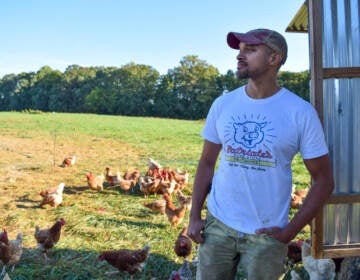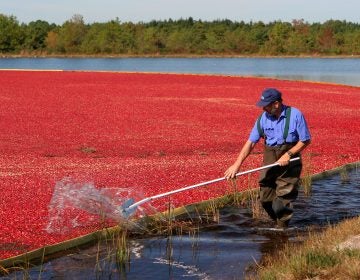Don’t serve up stomach bug along with holiday meal

Use one cutting board for vegetables and another for meat to avoid cross contamination
Happy holidays. Tis the season for norovirus — a stomach ailment that can start with contaminated food.
And nothing leaves a worse aftertaste from Thanksgiving than sending your guests home with a bug.
During the holidays, people are preparing food that they might not be very comfortable with, and that’s a recipe for more mistakes, said Chris Bernstein, director of food safety education with the U.S. Department of Agriculture.
Food shouldn’t linger on the buffet table longer than two hours after it comes out of the oven, he said.
“If you just put your whole turkey in the fridge, it’s going to stay warm for a really long time in the refrigerator, and that gives bacteria and pathogens the opportunity to grow,” he said. “So, if you take it apart, you take the meat off the bones, you deconstruct it and you put it in smaller containers, you’re going to make sure it cools more quickly and it stays safe longer.”
Norovirus — also known as the “winter vomiting bug” — can stem from eating contaminated food or touching contaminated surfaces.
“It’s a very hardy virus,” said epidemiologist Ami Patel, program manager for acute communicable disease at the Philadelphia Department of Public Health.
“If you adequately clean surfaces, you can definitely kill norovirus” she said. “But it can hang around on surfaces for a good bit of time.”
Depending on the surface and temperature, some studies show the bug can live for a few hours or a few days.
To avoid food-borne illness, Patel recommends four key things:
- Wash your hands often.
- Avoid cross contamination. Leave raw foods on the raw side; leave cooked foods on the cooked side.
- Don’t mix meat and vegetables.
- Keep foods at their proper temperature: hot foods hot, cool foods cool.
“Food-borne illnesses are notoriously difficult to track,” Bernstein said. “Norovirus can come on as quickly as three or four hours, and other pathogens or sicknesses like listeria can take 60, 70 or 80 days to show any symptoms.”
Bernstein uses one cutting board for vegetables and another for meat to avoid cross contamination. His final advice: There’s no need to wash your turkey. The only way to “wash” or kill bacteria on meat is to cook it at the proper temperature.
The USDA’s Meat and Poultry Hotline 1-888-674-6854 is open weekdays from 10 a.m. to 4 p.m. Eastern time and from 8 a.m. to 2 p.m. on Thanksgiving Day. The website is foodsafety.gov.
WHYY is your source for fact-based, in-depth journalism and information. As a nonprofit organization, we rely on financial support from readers like you. Please give today.




